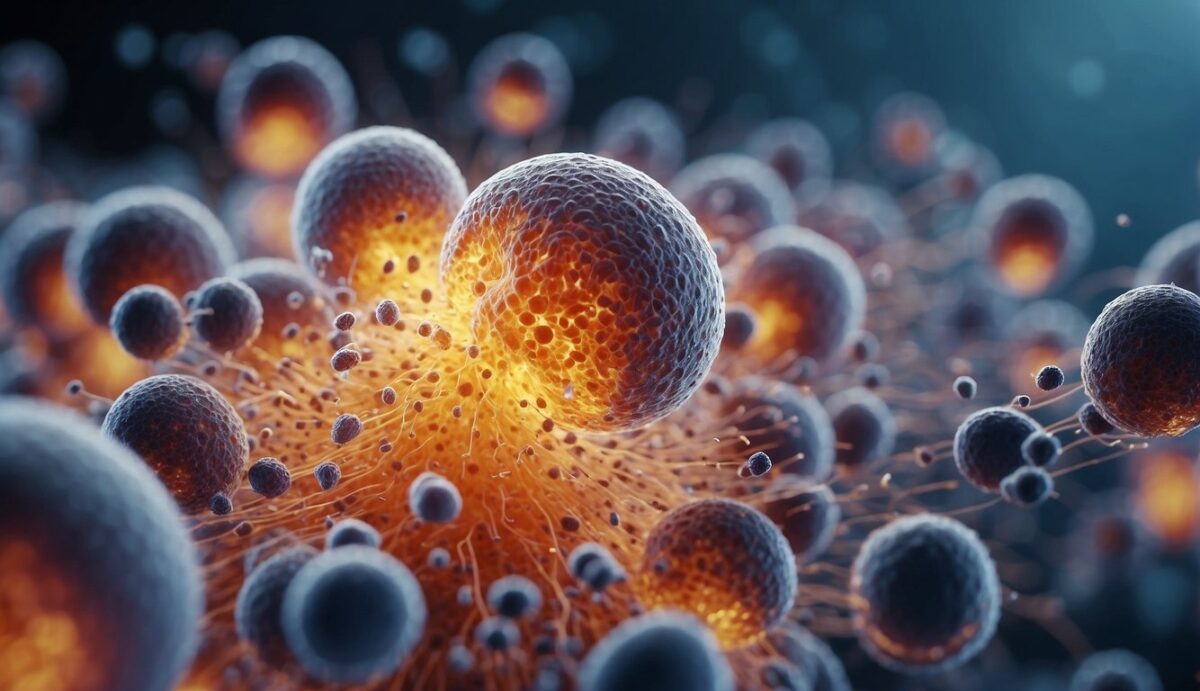Dalmatian dogs, known for their distinctive spotted coats and unique dispositions, are just as susceptible to autoimmune disorders as other breeds.
Autoimmune diseases occur when the body’s immune system mistakenly attacks healthy cells, mistaking them for harmful invaders.
This can lead to a variety of symptoms, which can be challenging to manage without understanding the underlying mechanisms at play.
Managing autoimmune disorders in Dalmatians involves recognizing the signs of immune system dysfunction early on.
Symptoms can vary widely, from mild skin irritation to serious joint pain or organ dysfunction.
Fortunately, advances in veterinary medicine have improved the diagnosis and treatment of these conditions, allowing for better management and an improved quality of life for affected dogs.
Key Takeaways
- Dalmatians can experience autoimmune diseases where the immune system attacks healthy cells.
- Symptoms of autoimmune dysfunction in Dalmatians are varied, from skin issues to organ problems.
- Early detection and modern veterinary practices are crucial for managing these disorders effectively.
Fundamentals of Autoimmune Disorders

Encountering an autoimmune disorder can be overwhelming, but understanding the basics can empower you to navigate this complex condition.
Here’s what you need to know about how they occur, the immune system’s role, and the influence of genetics.
Defining Autoimmune Diseases
Autoimmune diseases occur when your immune system mistakenly attacks your body’s own cells. This self-targeting can result in a variety of conditions, depending on the tissues affected.
The common thread in these diseases is an error in self-tolerance, the mechanism that usually enables your immune system to distinguish between self and non-self.
Key Entities:
- Autoimmune diseases
- Immunity
- Self-tolerance
The Role of the Immune System
Your immune system is divided into two main components: innate immunity and adaptive immunity.
Innate immunity is your first line of defense, providing a general response to pathogens, while adaptive immunity deals with specific threats by creating long-term memory of pathogens.
- Innate Immunity involves barriers like skin and also cells such as NK (natural killer) cells.
- Adaptive Immunity involves a more sophisticated response, with T and B cells targeting specific antigens.
Between these two branches, a well-coordinated response is usually maintained, but in autoimmune diseases, this collaboration falters.
Genes and Autoimmunity
Genetic factors play a significant role in autoimmunity.
Certain genes can make you more susceptible to autoimmune diseases.
The HLA (human leukocyte antigen) system is a group of genes closely associated with immune system regulation, and variations in these genes can influence your predisposition to autoimmune disorders.
- Relevant Genomic Entities:
- Genes
- Genetic predisposition
- HLA system
Evidence suggests that inheriting specific HLA types can increase your risk, but genes alone may not tell the full story, as environmental factors also contribute to the emergence of autoimmune conditions.
Common Autoimmune Diseases

Autoimmune diseases come in various forms, affecting different parts of your body. Whether impacting a single organ or multiple systems, each condition has its own set of challenges.
Systemic Versus Organ-Specific
Autoimmune conditions are broadly categorized into systemic, impacting various body parts, and organ-specific, targeting individual organs.
For example, lupus is systemic and can affect your skin, heart, and lungs, while type 1 diabetes is organ-specific, primarily concerning your pancreas.
Autoimmune Skin Conditions
In terms of autoimmune skin conditions, diseases like psoriasis exhibit symptoms of red, itchy, and scaly skin.
Your skin is not only your largest organ but also an immune barrier subject to autoimmune activity.
Gastrointestinal Autoimmune Disorders
Moving internally, Gastrointestinal autoimmune disorders like Crohn’s disease and ulcerative colitis cause inflammation in parts of your digestive tract, leading to symptoms such as abdominal pain and weight loss.
Neurological and Muscular Autoimmune Diseases
Multiple sclerosis is a neurological condition where your immune system attacks the protective sheath of your nerves.
In contrast, myasthenia gravis, a muscular autoimmune disease, results in weakening of the voluntary muscle groups.
Rheumatoid Arthritis and Lupus
Rheumatoid arthritis and lupus are both systemic.
The former primarily causes joint inflammation and pain, while the latter can result in a more widespread bodily response, sometimes including a characteristic facial rash.
Endocrine Autoimmune Diseases
Lastly, endocrine disorders like type 1 diabetes impact hormone-producing glands; your immune system attacks the cells in the pancreas that make insulin, essential for regulating blood sugar.
Pathogenesis and Symptomatology

In Dalmatians dealing with autoimmune disorders, your immune system mistakenly attacks your own body, leading to a variety of symptoms.
Let’s explore how these disorders develop and what symptoms you might observe.
Autoantibody Production
Your immune system normally produces antibodies to fight off harmful pathogens.
However, in the pathogenesis of autoimmune disorders, your body instead starts producing autoantibodies.
These autoantibodies target and attack your own tissues, mistaking healthy cells for threats.
- Pathogens vs. Autoantigens: Normal antibodies target pathogens. Autoantibodies, however, target autoantigens, which are normal components of your cells.
- Affected Tissues: Depending on the specific autoantigen targeted, different tissues can be affected, leading to a wide array of potential disorders within your body.
Inflammation and Pain
The presence of autoantibodies leads to chronic inflammation. This is your body’s response to the perceived threat from within, leading to:
- Redness and Swelling: Increased blood flow to the affected areas causes a red, swollen appearance.
- Pain: As tissues swell, they can press against nerve endings, which is often experienced as pain.
Symptoms Across Different Disorders
Each autoimmune disorder comes with its own set of symptoms, but several commonalities exist across different conditions:
- Rash: Skin inflammation can lead to visible rashes, which might be localized or spread across your body.
- Headache and Fatigue: Systemic inflammation affects your entire body, sometimes resulting in headaches or a pervasive sense of tiredness.
- Localized Symptoms: Depending on which tissues are targeted by autoantibodies, you may experience a range of symptoms from joint pain to digestive issues.
Epidemiology and Risk Factors

In exploring Dalmatian autoimmune disorders, you’ll find that genetics and environment both play crucial roles. Understanding the epidemiology and risk factors helps in managing and anticipating the needs of affected dogs.
Global Prevalence
The global prevalence of autoimmune disorders in Dalmatians isn’t uniformly recorded; however, studies indicate that autoimmune diseases affect a significant portion of the canine population.
Due to genetic traits, Dalmatians may be more susceptible to certain autoimmune disorders like Dalmatian Bronzing Syndrome and autoimmune thyroiditis.
Gender and Autoimmune Disorders
Gender can influence the likelihood of developing autoimmune issues.
Much like in humans where women are more prone to autoimmune diseases, female Dalmatians might carry a higher risk for certain conditions.
It’s essential to monitor your female Dalmatian’s health closely for signs of autoimmune dysfunction, as early detection can make a significant difference in outcomes.
Immunological Concepts and Cellular Roles

In this section, you’ll learn about the integral components of your immune system and their roles in combating autoimmune disorders.
B Cells and T Cells
B Cells, or B lymphocytes, are white blood cells that are pivotal for producing antibodies which tag pathogens for destruction.
Your T Cells, or T lymphocytes, are involved in directly killing infected host cells, activating other immune cells, and regulating the immune response.
These cells are essential in the adaptive immune system, residing in your lymph nodes and circulating in the bloodstream to fend off threats.
Cytokines and Inflammatory Response
Cytokines are small proteins released by cells, including white blood cells or leukocytes, that have a specific effect on the interactions and communications between cells. They signal the immune system to do its job.
During an autoimmune response, cytokines can contribute to an excessive inflammatory response, which can cause tissue damage.
Innate Versus Adaptive Immune System
The difference between the innate and adaptive immune systems lies in their response time and specificity.
Your innate immune system acts as the first line of defense, responding immediately to a broad range of pathogens.
It includes physical barriers, like skin, and specialized cells, such as phagocytes. The adaptive immune system, on the other hand, is highly specific and develops memory against pathogens, offering stronger protection upon re-exposure.
It comprises elements like B and T cells which are tailored to recognize and neutralize specific antigens.
Triggers and Environmental Influences

Your Dalmatian’s immune system is intricate and can be affected by various external factors.
From everyday lifestyle choices to invisible microbes, certain triggers may compromise the immune balance, leading to disorders.
Infections and Autoimmunity
Infections caused by viruses and bacteria can sometimes initiate an autoimmune response in Dalmatians.
These pathogens can confuse the immune system, causing it to react as if the body’s own tissues are foreign.
For instance, specific viral infections could trigger your Dalmatian’s immune system to become overactive.
The Human Microbiome Connection
Your Dalmatian’s health is closely tied to the gut microbiome, a complex ecosystem of bacteria and other microorganisms.
A balanced microbiome supports the immune system, while imbalances may lead to allergic reactions and autoimmune diseases.
Key Influences on Microbiome Health:
- Diet: Feeding your Dalmatian a balanced diet supports a healthy microbiome.
- Antibiotics: While sometimes necessary, they can disrupt gut bacteria balance.
Lifestyle Factors: Smoking and Alcohol
Lifestyle choices, like smoking and alcohol consumption, can influence your Dalmatian’s risk of developing autoimmune issues.
- Smoking: Chemicals in smoke can lead to inflammation and immune dysfunction.
- Alcohol: Excessive consumption can disrupt your Dalmatian’s immune system and gut microbiome.
Diagnostic Procedures

When it comes to pinpointing autoimmune disorders in Dalmatians, specific diagnostic procedures are key to identifying the issue.
Blood tests and imaging are fundamental in assessing your dog’s immune function.
Blood Tests and Biomarkers
Your Dalmatian may undergo a variety of blood tests to evaluate their immune system functionality.
One crucial element in this testing includes looking for autoantibodies, which are immune proteins that mistakenly target and react with a person’s own tissues or organs.
- Complete Blood Count (CBC): This test measures the number of different blood cells, including white blood cells, red blood cells, and platelets. An abnormal increase or decrease in these cells can provide clues about autoimmune activity.
- Erythrocyte Sedimentation Rate (ESR) and C-Reactive Protein (CRP): These biomarkers are typically elevated when there’s inflammation in the body, which is a hallmark of autoimmune conditions.
- Antinuclear Antibody (ANA) Test: Often run for autoimmune disorders, it detects antinuclear antibodies in your dog’s blood.
- Thyroid-related tests: These are essential, given the prevalence of thyroid issues like autoimmune thyroiditis in Dalmatians.
Imaging and Symptom Assessment
Beyond blood tests, your veterinarian may recommend specific imaging techniques to visualize areas of concern internally.
Alongside these, a thorough assessment of symptoms is conducted for a more comprehensive diagnosis.
- Ultrasound and X-rays: These imaging methods can reveal changes in organ size or structure, indicating inflammatory processes or organ damage often associated with autoimmune disorders.
- Symptom Log: Keeping track of your Dalmatian’s symptoms can significantly aid in diagnosis. Make a note of their energy levels, any visible inflammation, or behavioral changes that may align with autoimmune disease manifestations.
Treatment and Management

When it comes to managing Dalmatian autoimmune disorders, the right combination of medications and therapies complemented by supportive lifestyle changes can make a significant difference in your dog’s quality of life.
Medications and Therapies
Immunosuppressive Agents: The cornerstone of treating autoimmune disorders in Dalmatians is often immunosuppressive medication. These drugs, like corticosteroids, help reduce the immune system’s overactivity.
- Corticosteroids: Prednisone or prednisolone to reduce inflammation.
- Nonsteroidal Drugs: Azathioprine or cyclosporine as additional immunomodulators.
Targeted Therapies: Besides general immunosuppressants, targeted therapies might be prescribed to tackle specific symptoms or types of immune dysfunction.
- Biologics: These are specialized drugs designed to interfere with specific parts of the immune system.
- Antibody Therapies: Sometimes, therapies involving antibodies might be used to help control the immune response.
Regular Monitoring: Your veterinarian will suggest regular blood tests and check-ups to monitor the side effects of medications and adjust dosages as needed.
Lifestyle and Alternative Approaches
Balanced Diet: Providing a balanced diet can support your Dalmatian’s overall health and potentially moderate the immune response.
- Omega-3 Fatty Acids: These are anti-inflammatory and can be found in fish oil supplements.
- Antioxidants: Supplements like vitamin E may help neutralize free radicals in the body.
Stress Reduction: Stress can exacerbate autoimmune disorders, so it’s essential to keep your Dalmatian in a calm and stable environment.
- Consistent Routine: Stick to a regular schedule for feeding, walks, and playtime.
- Positive Reinforcement: Use rewards and praise to encourage stress-free training and behavior.
Cutting-Edge Research and Advances

Your pet Dalmatian’s health is paramount, and understanding the latest research on autoimmune disorders can help in managing their well-being. With new genetic insights and pioneering therapies under investigation, the frontiers in combating these conditions are expanding like never before.
Genetic Research in Autoimmunity
Recent advances in genetic research are uncovering the complex relationship between your Dalmatian’s DNA and their risk of autoimmune disorders.
Notch signaling, a critical communication pathway involved in cell differentiation, is a key focus. Studies are identifying genetic components that influence immunodeficiency, and thereby, your Dalmatian’s predisposition to autoimmunity.
- Key Genetic Markers Identified: Researchers are pinpointing specific markers that can predict susceptibility to autoimmune conditions.
- Role of Notch Signaling: Alterations in Notch signaling pathways have been linked to the development of certain autoimmune diseases.
Immunotherapy and Drug Development
In the realm of immunotherapy and drug development, breakthroughs are generating new therapeutic strategies. By understanding how the immune system malfunctions, scientists are developing treatments that ‘retrain’ it or modulate its response.
- Targeted Immunotherapies: Drugs that specifically direct the immune system to reduce inflammation without broad suppression.
- Capture and Control: Novel drugs are designed to capture rogue immune cells or overactive components, improving immune regulation.
The exploration of these treatments offers hope for significant improvements in the quality of life for Dalmatians affected by autoimmune disorders. Keep an eye on the progress in this exciting field of veterinary medicine.
Frequently Asked Questions (FAQs)

In this section, you’ll find answers to common questions about Dalmatian autoimmune disorders to help you understand symptoms, genetics, and management options.
What are the indicators that a Dalmatian may have an autoimmune disorder?
If your Dalmatian is exhibiting signs such as persistent fatigue, unexplained weight loss, skin rashes, or joint pain, these may be indicators of an autoimmune disorder.
It’s important to monitor these symptoms closely and consult your veterinarian.
Can genetics play a role in a Dalmatian’s susceptibility to autoimmune diseases?
Yes, genetics can influence a Dalmatian’s risk for developing autoimmune diseases. If autoimmune disorders are prevalent in your dog’s lineage, it may be more susceptible to similar conditions.
Are there holistic approaches to managing autoimmune conditions in dogs?
Holistic approaches, such as a balanced diet, regular exercise, and dietary supplements, can support your Dalmatian’s immune system and may help manage autoimmune conditions.
However, it’s crucial to discuss any holistic strategies with your veterinarian to ensure they complement traditional treatments.
Which autoimmune disorders are most frequently diagnosed in canine breeds?
Canine breeds may be diagnosed with various autoimmune disorders such as autoimmune hemolytic anemia, systemic lupus erythematosus, and autoimmune thyroiditis.
These are some of the common autoimmune conditions veterinarians encounter in dogs.
Is there a possibility of a full recovery from autoimmune diseases for dogs?
Autoimmune diseases in dogs are typically managed rather than cured. With appropriate treatment and care, many dogs can live a relatively normal life, but ongoing management is often required.
What kind of lifespan can be expected for a Dalmatian living with an autoimmune condition?
A Dalmatian living with an autoimmune condition may have a near-normal lifespan, depending on the severity of the disease and effectiveness of the treatment.
Regular veterinary care and early detection are essential to manage the disease and maintain your dog’s quality of life.

